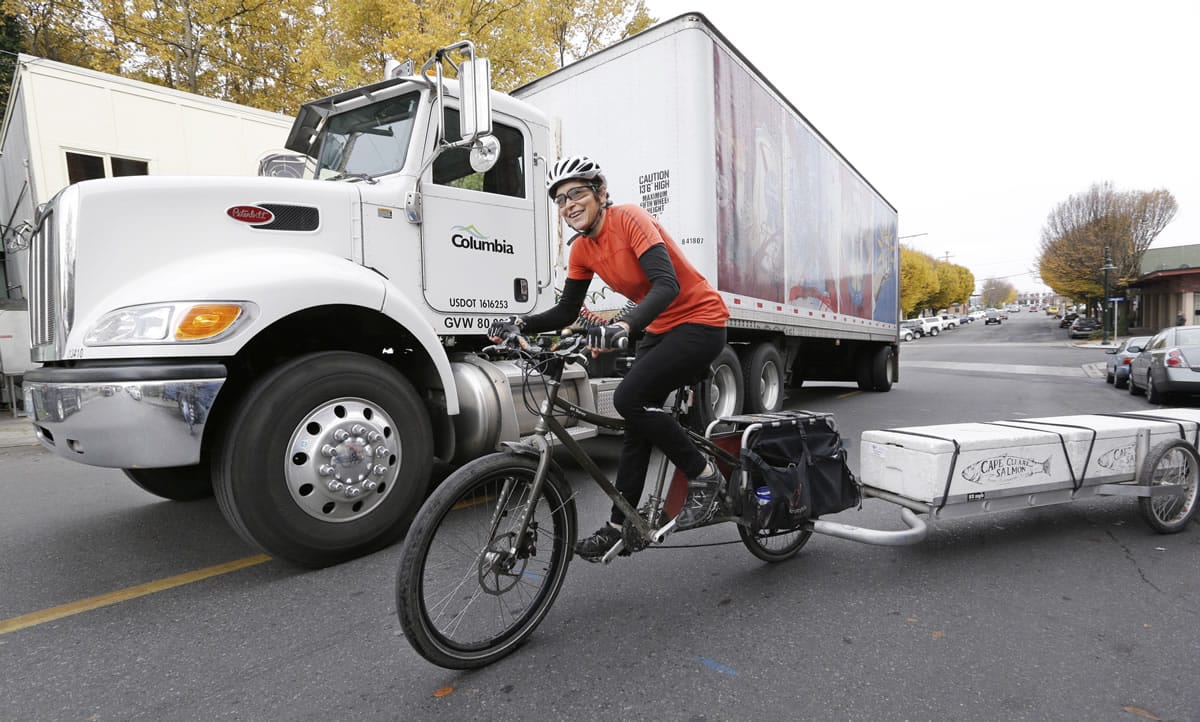SEATTLE — One fisherman uses a bike to deliver hundreds of pounds of salmon to local markets. A mom who regularly shuttles her two kids around town once tried to haul a twin mattress home. And some companies are using the bikes to deliver beer kegs or pick up recycling.
Cyclists are pushing the limits of what they can haul on cargo bikes — sturdy two-wheelers built to haul lots of stuff. The so-called SUV of bicycles are increasingly popular in pedal-friendly areas, from Washington state to Massachusetts.
Families are using the bikes to do everything they did on four wheels — schlepping kids to school, hauling groceries or running errands — without the hassle of finding parking. Some do it to help the environment in a small way or get exercise, while others say it is an easier, more fun way to get around.
“(Our) bike has turned into our go-everywhere minivan,” said Julian Davies, a Seattle physician who regularly hauls his two kids in a cargo bike.
Companies also are using bikes to deliver beer around Portland, collect recycling in Cambridge, Mass., or pick up dirty laundry in Philadelphia.
Cargo bikes are common in such countries as Denmark and The Netherlands. They’re catching on in the U.S. Companies such as Xtracycle, Yuba and Metrofiets cater to this niche, while major bike makers like Trek are also developing their own lines.
It’s still in the early adopter phase, but “it’s picking up steam,” said Andy Clarke, president of the League of American Bicyclists. “It’s a reflection of the growing utility of cycling, and the propensity to use bikes for more and more activities. It’s giving people more options and flexibility.”
Cargo bikes can refer to any bike that hauls heavy loads. Many models out now are built to handle multiple people or loads up to about 400 pounds on a single frame. They can be a foot or two longer than typical bikes, and are often outfitted with a wheelbarrow-like box or shelf, in front or back. Some cost between $1,000 and $5,000.
“If you want to park your car, this is the way to go,” said Joel Grover, co-owner of Splendid Cycles in Portland. The shop opened four years ago mostly to sell to businesses, but quickly began catering to families who wanted wheels to handle more than one kid.
“We’re reaching a point where all these cities are encouraging people to go places by bike,” co-owner Barb Grover said.
Seattle dad Davies has logged about 2,000 miles on his cargo bike. A rain cover and electric assist helps him power through Seattle’s rain and hilly terrain. His two young kids sit in a large front box built between the handlebars and front wheel.



